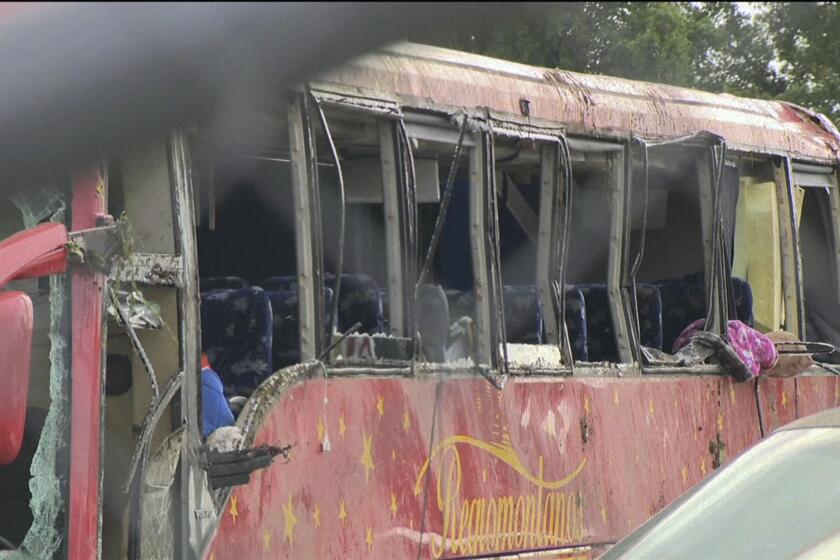Berlin Rally to Protest Kohl’s Policies Fizzles : Germany: The meager turnout strengthens the chancellor’s hand in the debate on reunification policies.
Attempts by Chancellor Helmut Kohl’s political opponents to capitalize on the growing economic and social misery in eastern Germany received a major setback Wednesday when barely a fraction of the predicted number turned out for what was billed as a major protest at Berlin’s famous Brandenburg Gate.
Instead of the crowd of 150,000 predicted by leaders of Germany’s large metalworking union, IG Metall, only about 20,000 showed up to hear a denunciation of Kohl’s policies, which favor rapid privatization of the formerly Communist East German industrial sector.
The closure of many large factories and the privatization of others has generated high unemployment in the region--and it is predicted to grow in the months ahead.
At the demonstration, IG Metall leader Franz Steinkuehler’s vague rhetoric was met with intermittent shouts of “Concepts, we want concepts!” from the crowd.
At one point, Steinkuehler appeared to propose a boycott of western goods in the east--an idea that would seem to run directly against the interests of the majority of his union’s membership.
The sparse turnout is expected to ease pressure on Kohl to cooperate with the opposition Social Democrats to resolve the crisis in eastern Germany.
In Bonn, Kohl specifically rejected demands by the Social Democrats to negotiate changes in his policies toward the east.
The demonstration in Berlin was small despite union efforts to bus many protesters hundreds of miles into the city from the region’s industrial south. Similarly, attempts by western trade unions and the Social Democrats to revive the traditional Monday evening demonstrations in Leipzig have collapsed.
It was a series of mass demonstrations in Leipzig that toppled East German Communist leader Erich Honecker in 1989 and eventually led to the disintegration of communism in East Germany.
But there seemed little enthusiasm among Leipzig’s residents to repeat the effort. After successive weeks of dwindling numbers, protest organizers in the city announced that the final demonstration would be next Monday.
In recent weeks, speakers--mainly from western trade unions--have been booed and whistled down by local residents who denounced them as “commuter activists.”
A number of political observers believe unification has actually widened the division, in part because the eastern German economic collapse has been accompanied by a boom in the western part--a boom fueled mainly by the addition of eastern German markets.
Instead of expressing rage and anger, the majority of eastern Germans appear more personally depressed and confused by the extent of the social and economic collapse that has unfolded around them.
The absence of any eastern Germans in positions of real power in Bonn has also accentuated their conviction that they are powerless to alter their own fate.
More to Read
Sign up for Essential California
The most important California stories and recommendations in your inbox every morning.
You may occasionally receive promotional content from the Los Angeles Times.






